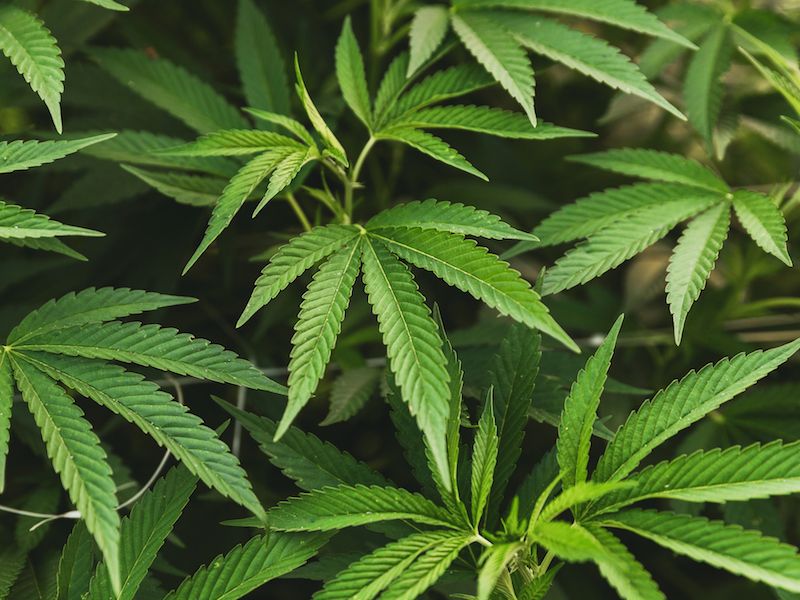
Public opinion about marijuana and cannabinoids have transformed remarkably in the past several decades. The majority of states currently permit the use of marijuana, THC, or cannabinoid products for medicinal applications. A decade ago it would have been unimaginable for marijuana to be legal for recreational usage but some states have even taken this step.
Cannabinoids are classified as a group of substances produced from the cannabis or marijuana plant. New things are being discovered about cannabinoids all the time in spite of their recent decriminalization in some states. We often consider these particular substances as having universal healing properties, but established research implies there might also be negative impact such as a strong connection between cannabinoid use and the development of tinnitus symptoms.
There Are Numerous Kinds of Cannabinoids
Today, cannabinoids can be used in lots of forms. It’s not just weed (or refer, or grass… look, let’s just all agree upfront that marijuana has a significant number of nicknames and move on). Pills, oils, mists and other variations of cannabinoids are currently obtainable.
The types of cannabinoids available will vary depending on the state, and many of those varieties are still officially illegal under federal law if the amount of THC is over 0.3%. So it’s still common for people to be very cautious about cannabinoids.
The issue is that we don’t yet know much about some of the lasting side effects or risks of cannabinoid usage. A good example is the new insight about how cannabinoids impact your hearing.
New Studies Into Cannabinoids And Hearing
A large number of illnesses and medical conditions are thought to be helped by cannabinoids, whatever you like to call it. Seizures, nausea, vertigo, and more seem to be improved with cannabinoids, according to anecdotally available evidence. So researchers decided to see if cannabinoids would be helpful with tinnitus, as well.
Turns out, cannabinoids may actually trigger tinnitus. Ringing in the ears was documented by over 29% of participants after implementing cannabinoids. And that’s in people who had never had tinnitus before. Furthermore, marijuana users were 20-times more likely to report having tinnitus symptoms after 24 hours.
Added research indicated that marijuana use could exacerbate ear-ringing symptoms in people who already suffer from tinnitus. In a nutshell, there’s some very convincing evidence that cannabinoids and tinnitus don’t really mix very well.
How Cannabinoids Make Tinnitus Worse
Your tinnitus can be intensified by cannabinoids in a couple of tangible ways. The first is that your tinnitus can become more frequent. Cannabinoids can also make those tinnitus episodes more overwhelming. More intense ringing that can be much harder to dismiss can be the result.
Cannabinoids have also been shown to lead to the onset of tinnitus symptoms. Or, explained another way: after you start using cannabinoids you could start to experience tinnitus symptoms even if you had no symptoms before.
It’s Still Unclear What Causes Tinnitus
We understand there is a link between tinnitus and certain triggers but we’re still not certain what the actual underlying causes are. That cannabinoids can have an affect on the middle ear and on tinnitus is pretty clear. But what’s causing that impact is far less obvious.
But we know that marijuana use, in contrast to other mood altering substances such as alcohol, can cause tinnitus.
Research, invariably, will continue. Cannabinoids these days come in so many varieties and forms that learning the fundamental connection between these substances and tinnitus should help individuals make better choices.
The Miracle Cure Beware
There has certainly been no shortage of marketing hype concerning cannabinoids recently. That’s partly because perceptions are changing about cannabinoids (and, it could also reveal that people are trying to get away from opioid use). But this new research clearly shows that cannabinoids can and do create some negative consequence, specifically if you’re worried about your hearing.
The marketing for cannabinoids has been very aggressive and you can’t completely escape all of the enthusiasts.
But this new research certainly indicates a solid link between cannabinoids and tinnitus. So regardless of how many adds you see for CBD oils, if you’re concerned about tinnitus, you should most likely keep away from them. It’s worth being cautious when the link between cannabinoids and tinnitus has been so firmly established.